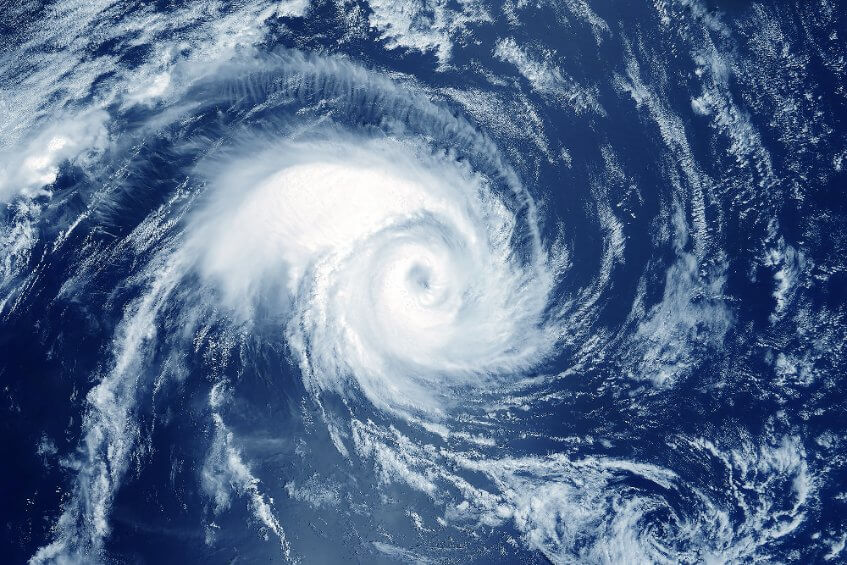
8 Hurricane Preparations and Survival Tips For New Englanders
The 2022 Atlantic hurricane season is at hand. If you live in New England, extra precautionary measures and preparation are advised. According to the National Oceanic and Atmospheric Administration, the hurricane season begins on June 1, which may extend up to November 30.
They also predict a 65 percent chance of an above-normal season, and Colorado State university corroborates this information.
For this year, NOAA forecasts a possible range of 14-21 storms (winds of 39 mph or higher). They anticipate that around 6 to 10 of the forecasted storms could lead to hurricanes (wind speed of 74 mph or higher), and around 3 to 6 could develop further into major hurricanes.
While not all storms make landfall, it is important to be prepared. We’ll discuss why New Englanders should take extra measures to prepare for storms and provide eight actionable tips on how you can do so.
Why Prepare for Storms and Hurricanes?
Storms and hurricanes bring strong winds and disastrous rain that can lead to flooding and property damage. According to NOAA, most hurricanes tend to devastate the Gulf Coast and the Atlantic Coast states. However, New England borders the Atlantic Ocean, which puts it directly in the path of storm surges and hurricanes.
The Atlantic hurricane season of 2021 was dubbed the third most active hurricane season, with 115 fatalities and up to $65 billion in property damages recorded.
History of Storms in New England
New England has been hit by 39 tropical systems since 1900. Historically, more hurricanes have ravaged the region than tropical storms. Among those 39 recorded systems, 25 were hurricanes and 14 were tropical storms.
Of the 25 hurricanes, only nine made landfall on the Southern New England Coast. Seven of those hurricanes were either category 2 (96-110 mph) or 3 (111-129 mph) on the Saffir-Simpson hurricane scale.
That meant that well-constructed households could sustain roof and siding damages, and shallow-rooted trees could snap or be uprooted. And in extreme cases, roof decking and gable ends may be totally removed. This also means that electricity and water could be unavailable for days or even weeks after the storm passes.
The primary threat of the Atlantic hurricane season to New England is during August and September, but it can start as early as June to mid-October. To date, the most damaging hurricane to ravage New England was the Great Hurricane of 1938, which caused 564 fatalities, 1,700 injuries and irreparable damages to homes, businesses and fishing vessels.
Who’s to say it won’t happen again? The key is being prepared.
Preparation and Survival Tips for Storms
Although not all storms are capable of making landfall, those that do usually cause more damage and flooding as they increase in intensity. Therefore, you should prepare your family, home and ensure reliable insurance coverage when that happens.
Here are some ways to prepare for storms:
1. Stay informed
Monitor the weather forecast and alerts so you know if there’s a storm coming. Note the projected date of landfall, forecasted intensity and recommended preparations your local community advises. Have a battery-powered radio on hand to be continuously updated. You can also sign up for free text and email alerts from your locality if they offer such a service.
2. Prepare an adequate amount of supplies
Gather food, water and other survival supplies like medicines, first-aid kits, batteries and chargers for your household. The rule of thumb is to prepare at least two weeks’ worth of supplies if the local community advises people to stay indoors. Alternatively, if you have to evacuate, prepare a go-kit containing at least three days’ worth of supplies.
3. Secure your home
Bring all outdoor furniture and other loose items indoors. Aside from keeping your things safe, it will also prevent them from causing injury to other residents. Shut your windows and lock the doors. If possible, invest in storm shutters because they offer the best protection against flying debris.
4. Keep important documents safe
Make sure you have copies of important documents such as your ID, insurance information and bank statements. Store them in a waterproof and fireproof container. You can also keep them electronically by scanning or taking pictures of them.
5. Plan your evacuation route
Know where the evacuation center is and familiarize yourself with the route. Choose several possible routes in case one of them is blocked by debris or flooding. Make sure to have a map of the area handy. If you have pets, make arrangements for their care in advance as well.
6. Keep your gas tank full
In case you need to evacuate, it’s important to have a full gas tank, so you don’t get stranded on the way. If a hurricane is approaching, avoid using your car unless absolutely necessary to conserve gas.
7. Evacuate if necessary
If advised by authorities to do so, evacuate immediately to avoid getting caught in the storm. If you can’t evacuate, find a safe place to ride out the hurricane. That could be a sturdy building or even a small interior room in your home.
8. Have a Reliable Insurance
Plan ahead of time. Make sure you have a reliable insurance plan in place before a hurricane hits. This will help you recover financially if your home or belongings are damaged during the storm. The Northeast – MetroWest Insurance Agency provides property and casualty insurance to businesses and residents throughout New England.
Contact their representative to be insured today.
Storms and hurricanes are deadly forces of nature. Nonetheless, there are workarounds you can do to minimize their damage to you and your family. We hope the above information will help you this 2022 Atlantic hurricane season.
If you have found this information helpful, please follow NE Insurance on Facebook for more updates and actionable tips like these.

 Previous Post
Previous Post Next Post
Next Post